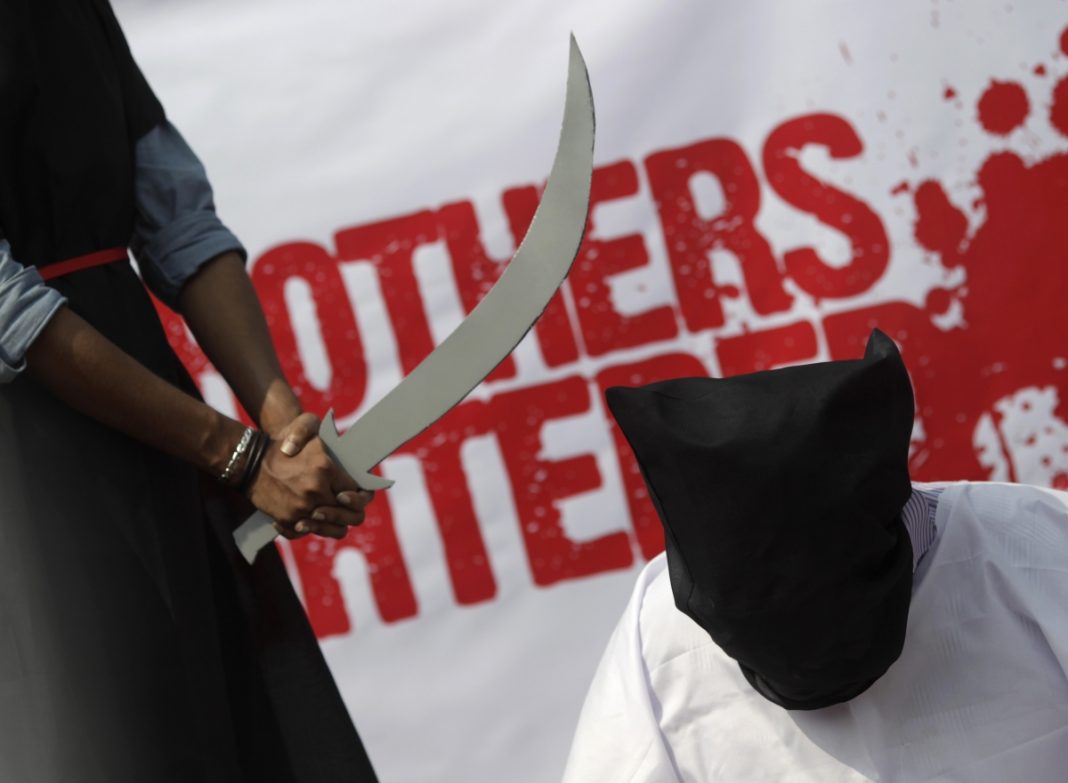The Saudi Ministry of Interior alleged in a statement on Saturday that the death sentences were carried out against Hussein Ali Al Abu-Abdullah and Mohammad Khedr al-Awami.
The ministry further claimed that the Saudi nationals “collaborated with terrorist groups, fomented unrest and insecurity in the country, possessed weapons, ammunition as well as rocket-propelled grenades and attempted to disrupt national security.”
Last month, two human rights organizations filed a complaint at the United Nations against arbitrary executions in Saudi Arabia, especially after the execution of dozens of prisoners in a single day in the ultra-conservative kingdom.
The European Saudi Organization for Human Rights (ESOHR) and Reprieve, a UK-based non-profit organization of international lawyers and investigators, announced the Riyadh regime openly declared its disregard for international principles as well as its commitments and obligations through the executions of 81 men, 41 of whom were Shia Muslims, in March.
The organizations stressed that special rapporteurs have pointed to various counts of violations, including torture, ill-treatment and arbitrary detention, in their reports, and informed the Saudi government in several letters about their occurrence.
They highlighted that the executions of anti-regime demonstrators and minors show that Saudi Arabia, contrary to official promises, continues to arbitrarily carry out death sentences.
State news agency Saudi Press Agency said on March 12 that the authorities had executed 81 people in one day on a variety of offences.
Of the 81 people, 73 were Saudi citizens, seven were Yemeni and one was a Syrian national.
The 2022 executions exceeded the total number of Saudi Arabia’s punishments by death throughout last year.
Back in early January 2016, Saudi authorities also executed 47 people, including prominent Shia cleric Sheikh Nimr Baqir al-Nimr, who had vociferously called for democracy in the kingdom and advocated anti-regime protests. Nimr had been arrested in Qatif, Eastern Province, in 2012.
Since 2015, Saudi Arabia has reportedly executed more than 900 prisoners in an increasing rate. In 2019 alone, Saudi Arabia set a record number of executions after authorities executed 184 people, despite a general decrease in the number of executions around the world.
Ever since Crown Prince Mohammed bin Salman became Saudi Arabia’s de facto leader in 2017, the kingdom has arrested dozens of activists, bloggers, intellectuals and others perceived as political opponents, showing almost zero tolerance for dissent even in the face of international condemnations of the crackdown.
Muslim scholars have been executed and women’s rights campaigners have been put behind bars and tortured as freedom of expression, association, and belief continue to be denied.
Over the past years, Riyadh has also redefined its anti-terrorism laws to target activism.
